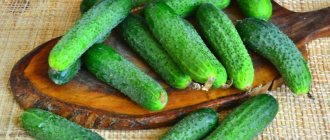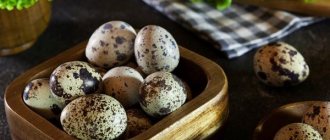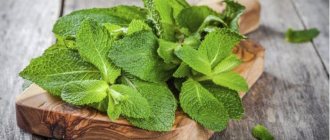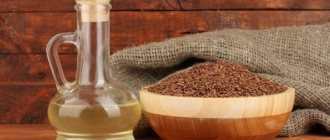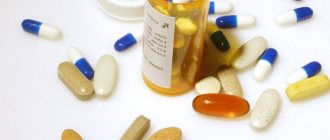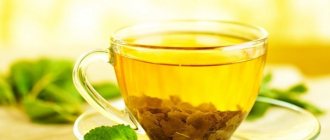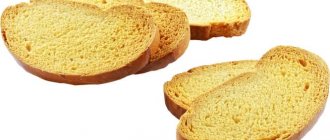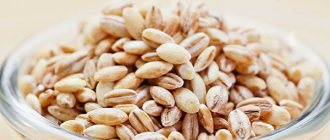Among all diseases of the digestive system, gastritis ranks first in prevalence. The pathological condition is accompanied by inflammation of the mucous membrane, dull pain in the epigastric region, nausea and general weakness. The cause of the disease is poor nutrition and stress. Gastroenterologists treat gastritis.
What can such a doctor prescribe? First of all, undergo an examination for an accurate diagnosis. The patient will be offered effective drug therapy and a diet plan that involves avoiding harmful foods. The treatment process can be supplemented with traditional medicine methods. Plantain gives good results for gastritis of the stomach, helping to get rid of the characteristic symptoms.
Medicinal properties, composition
Plantain was actively used by healers of Kievan Rus. The composition is rich and varied, many phytoncides and tannins. There are alkaloids, choline, and enzyme substances. The most common vitamins are carotene, C and K.
Of course, this is just the beginning of the list. Natural healer contains organic acids and flavonoids, polysaccharides. It also contains incredibly valuable oleanolic acid. Don't forget about proteins and carbohydrates.
Below are listed the beneficial properties of plantain in the treatment of certain diseases:
- Ascorbic acid and phylloquinone - strengthen thinned vessel walls and improve blood clotting.
- Carotene is converted into retinol in the human body. A very useful component that accelerates tissue regeneration. It activates the immune system, and the body begins to fight infection much more actively.
- Aucubin - it is thanks to him that we apply plantain to the wound. The action of aucubin can be compared to an antibiotic.
- Citric acid – promotes the flow of bile.
- Tannins. Their main task is to promote the production of gastric juice and have an astringent and bactericidal effect.
- Enzyme substances. Not a single biochemical process can occur without them.
- Phytoncides are a strong antiseptic that eliminates pathogenic bacteria. This also applies to Helicobacter pylori, which provokes inflammation in the stomach.
- Flavonoids - make blood vessels less permeable.
Everyone remembers how quickly and painlessly plantain leaves healed broken knees in childhood. It turns out that the plant is successfully used in the treatment of other pathologies. Numerous studies have repeatedly confirmed its diuretic and antibacterial properties. The plant acts as a sedative and promotes the outflow of mucus. No therapy for asthma, tuberculosis, bronchitis and dermatitis is complete without decoctions.
Leaves and seeds of plantain are used for treatment for gastritis. There are many components inside the seeds that protect the walls of the stomach from irritation. The mucus gently envelops the inflamed organ and prevents hydrochloric acid from corroding the delicate surface. Plantain seeds are used to prepare infusions and juice. Despite the sour-bitter taste, the leaves are added to salads. This dish significantly improves immune status.
How to prevent the development of complications of an ulcer?
Best defense is attack. This motto also applies to the treatment of gastric ulcers. If the first symptoms occur, such as heartburn, heaviness or pain in the upper abdomen, increased gas formation, you should contact a qualified gastroenterologist or therapist.
First of all, you should optimize your lifestyle: avoid stressful situations, get good sleep, start eating regularly, and do not eat food less than 3 hours before bedtime. You should exclude spicy, hot and solid foods from your diet, reduce the amount of alcohol consumed and cigarettes smoked, since smoking and ethyl alcohol stimulate the secretion of hydrochloric acid, which causes even more damage to the already damaged gastric wall and provokes an acceleration of the disease.
One of the safest and most effective means for the prevention and treatment of peptic ulcers is the treatment of stomach ulcers with plantain.
Features of using plantain for gastritis
There is good news for patients with gastric pathologies - plantain for gastritis with high acidity is quite acceptable. But for other forms of illness, plantain infusion can be used as a remedy.
Since one of the main causes of the disease is the bacterium Helicobacter pylori, the antibacterial properties of the plant will come in handy. Plantain decoction for gastritis not only suppresses its activity, but also fights streptococci and staphylococci.
Another reason to stock up on plantain is its amazing ability to relieve pain and relieve spasms. Foci of inflammation in the stomach heal much faster, and gastric acidity also returns to normal.
We focus your attention on one important point. Before drinking plantain juice for gastritis, you need to consult at least one good specialist - a herbalist or gastroenterologist. They are the ones who make the final decision whether you can take plantain in the form of a decoction or infusion.
Contraindications
And although plantain has many beneficial properties, it has a number of contraindications for use. They must be taken into account before starting treatment, since they can cause a deterioration in the general condition. Contraindications to the use of plantain-based products are:
- exacerbation of gastritis;
- inflammation of the gastric mucosa, accompanied by increased acidity of gastric juice;
- individual intolerance to plantain;
- peptic ulcer of the stomach and duodenum;
- the presence of blood clots or a tendency to form them (increased blood clotting).
If you have asthma, medications should be used with caution, monitoring the body's reaction. Treatment of gastritis with plantain should be started only after prior consultation with a doctor.
Preparing the decoction
To relieve inflammation, it is useful to brew plantain and drink it as a decoction of seeds.
- 20 grams of seeds are poured into a glass of boiling water.
- Cover with a lid and leave for 1 hour.
- The infusion is simmered in a water bath for 30 minutes.
- Allow to cool and filter. The finished drug is drunk before meals. The recommended dose is 2 tablespoons.
- To improve the taste of the drink, you can add a little honey to it.
This decoction is good because the seeds release a lot of mucus during the cooking process. Its benefits for an inflamed stomach are priceless, especially if the disease is accompanied by high acidity. Mucus lines the walls and protects the inflamed organ.
Application in cosmetology
Plantain with honey is also used in cosmetology. The complex is suitable for dry hair, oily or combination skin. Recipes:
- With fading and aging of the skin. Finely chop the leaves, pour 100 ml of boiling water, leave for a quarter of an hour, strain through cheesecloth. Take 20 ml of infusion, add 25 ml of cream, beaten yolk and 20 g of honey, stir. Cover face, wait 20 minutes, rinse with water.
- For dry skin. Take 2 plantain leaves, chop and grind in a mortar. At the same time, gradually add 3 tablespoons of water and honey until a creamy consistency is obtained. Cover the face with the mixture for 15–20 minutes, remove any excess with warm water.
Prepared masks moisturize, nourish, soften the skin, and also give tone and elasticity. This helps eliminate dryness and flaking. People with increased fat content also take products with plantain due to their ability to relieve inflammation, eliminate pathogenic microflora and cleanse pores. Shampoos and hair masks are produced on its basis.
We treat atrophic gastritis with plantain juice
Treatment of atrophic gastritis with freshly prepared juice is much more effective than a decoction of seeds. But it also takes more time to prepare. To get the medicine, you need to collect the leaves, wash them thoroughly and mince them. The resulting mass is squeezed out using gauze.
The resulting juice must be stored in a cool place. Drink in small quantities twenty minutes before meals. To remove the sour-bitter taste, add honey. The juice not only relieves pain - it removes inflammation.
Preparing the infusion
Some patients are interested in how to take plantain for gastritis in the form of an infusion? For preparation you will need seeds in powder form. Pour boiling water over 25 grams, stir with a spoon and cover with a lid. After the liquid has cooled and infused well, it is filtered. Drink teaspoons (2 pieces) 3 times a day.
This remedy is especially effective if inflammation is accompanied by severe constipation. For exacerbations, you can use the following recipe:
- Mix sage and plantain leaves in equal proportions.
- The mixture is brewed with boiling water, for every two tablespoons of the mixture there is 500 ml of boiling water. They insist for three hours. For the first 10 days, drink 100 ml on an empty stomach once a day. Then increase the frequency to 3 times a day.
Traditional recipes and method of application
Plantain is an effective remedy against chronic gastritis with any type of acidity, i.e., hyperacid, hypoacid or antacid gastritis. Pathology often develops against the background of damage to the organism Helicobacter pylori.
Due to the antibacterial effect of the plant, the use of plantain suppresses the activity of this bacterium and also reduces the concentration of hemolytic streptococci and staphylococci.
But even if the origin of gastritis is different, the use of plantain remains completely justified, because the plant relieves spasms and relieves pain, promotes rapid healing of inflammatory foci and normalizes gastric acidity.
But before using the plant, consultation with a gastroenterologist and herbalist is necessary. The treatment uses decoction and juice, syrup and infusion, as well as alcohol tincture.
Decoction for high acidity
For inflamed mucous membranes, it is useful to take a decoction from the seeds of the plant. you need to take 20 g of dried plant seeds, pour water (200 ml) and leave under the lid for at least an hour. Then place the infusion in a bathhouse and simmer for another half hour.
Cool the finished broth, filter and take 2 large spoons before meals.
For severe pain, you can add a little honey to the warm broth. The mucilage from the seeds is incredibly beneficial for the stomach; it gently envelops its walls, protecting them from the aggressive effects of hydrochloric acid.
Juice in atrophic form
Treatment of gastritis with plantain juice is much more effective, but it also requires more time to prepare, because only fresh leaves of the plant are used for the medicine. They must be thoroughly washed, then put through a meat grinder and the resulting porridge squeezed out using a piece of gauze.
The finished juice is stored in the refrigerator. You can drink it by adding a little honey. You should take the drink 20 minutes before meals three times a day. This juice has an analgesic effect and perfectly relieves inflammation.
Video on how to properly prepare plantain juice:
Infusion
The infusion of the plant also helps to cope with gastritis. It is prepared from dried plantain seeds ground into powder. For 25 g of powder, take a glass of boiling water, mix well and leave under the lid. After cooling, the liquid is filtered and taken 3 times a day, 2 small spoons each.
Powdered seeds are a great help if gastritis is accompanied by frequent constipation. For acute gastritis, an infusion of plantain and sage helps.
Mix plantain leaves with sage in equal proportions. Then 2 large spoons of the mixture are steamed with half a liter of boiling water for 3 hours. You need to take the infusion 100 ml for 10 days once a day, and then for 20 days you drink the infusion three times a day, also 100 ml.
